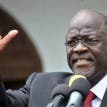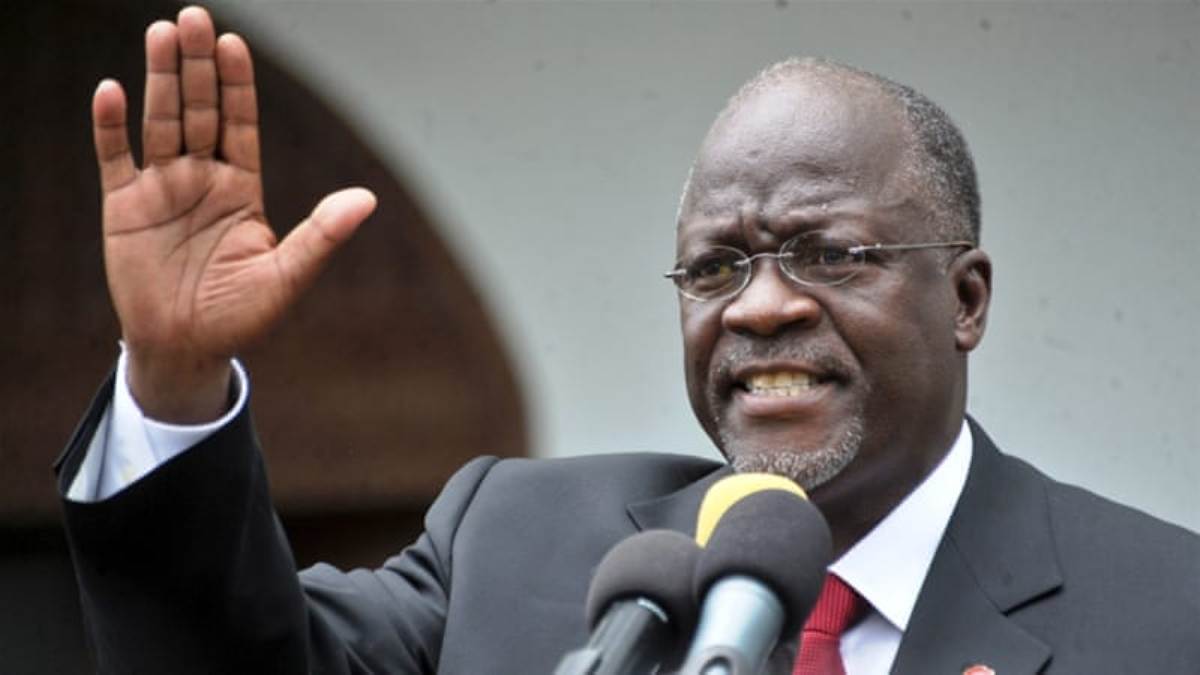Vanguard
Attacks on S’East: We must explore all options of negotiation — Stakeholders urge Igbo

By Olasunkanmi Akoni
The people of the South East region have been urged to explore the power of negotiation and mutual settlement in the face of ongoing killings and security challenges in the zone because the east can not afford another war at present.
Stakeholders from the South-East geo-political zone made the remark on Thursday, at the unveiling of the book, “Igbo, 50 years after Biafra,” written by Special Adviser to Lagos State Governor Babajide Sanwo-Olu on Drainage Services, Joe Igbokwe, held at Ikeja G.R.A.
Speaking at the unveiling of the book, the chairman of the occasion, Mr. Cutis Adigba,
urged the people of the South-East to learn to build bridges across the country, so that they can realise their ambition of producing the next president of Nigeria.
Adigba urged leaders from the zone to discourage the move and agitation by some youths in the South East to go to war and secede out of Nigeria.
Also read: Banditry: Disregard viral video, Niger State gov’t urges residents
He said that Igbo have always found it difficult to rule Nigeria because they refused to build bridges across the six geo-political zones that made up Nigeria.
While describing the agitation as uncalled for, Adigba noted that after two decades that Nigeria returned to civil rule, the Igbo has predominantly identified with only one political party.
He maintained that remaining in one party can not advance the cause of the people of South East and cannot make them realise their objective of producing an Igbo man as president.
He maintained that the publisher of the book, Igbokwe played politics outside his state, so that the Igbo race can be integrated with one another race.
Adigba said the failure of the Igbo to reintegrate with other ethnic nationalities politically was responsible for the retrogression of the race in Nigerian politics.
Igbokwe, also addressing guests on the occasion, maintained that the Igbo are not advancing politically because they refused to be integrated into National politics, lamenting that, despite their success in business, they are not successful in playing politics at the national level.
Corroborating Dimgba, Igbokwe noted that there was the need for the Igbo people to stand up and build bridges so that their objective of producing the next president of Nigeria could be realised.
According to him: “I have decided to raise my voice, I hope my people will hear me while trying to quell the effect of the war, our people are spoiling for another war, mayhem is being unleashed in Igbo land, and there is palpable fear.
“Those who could speak have lost their voice, mindful of the consequences of their actions, I am calling on all Igbo leaders to speak up because all actions carry consequences, consequences of the silence will be too dastardly to sustain.
“Those silently supporting the wild wind should be careful or else they hand over to their children,” he said.
Igbokwe urged those spoiling for war to jettison their plan and embrace dialogue, urging them to learn from the South West region that despite the challenges faced after the annulment of the June 12, 1993, election, they did not go to war, and the region had the opportunity of producing two of her sons for presidential position in 1999.
“You have to build bridges to become president of Nigeria, but it is unfortunate the Igbo are burning bridges.”
Speaking at the event, Chief Uche Dimgba who is the coordinator of Igbo in All Progressives Congress, APC in Lagos, described Igbokwe as “a Frank, fearless and reliable leader, who based his views on issues and stand by his opinions, and we the Igbo have confidence in him and believe he can lead us aright.”
“He is a leader we Igbo believe in and we will follow him. If he can serve all the governors produced in Lagos State since 1999, he is a better man to follow because he possesses all the experience that can be of benefit to Igbo both at home and in the diaspora.”
The post Attacks on S’East: We must explore all options of negotiation — Stakeholders urge Igbo appeared first on Vanguard News.
Sourced From: Vanguard News
Vanguard
Edo 2020: Kebbi contingent begins receiving COVID-19 jab — Official


Kebbi State contingent to the 2020/2021 National Sports Festival, on Tuesday, began receiving the COVID-19 vaccine, ahead of their departure for the competition on April 2.
The News Agency of Nigeria (NAN) reports that the festival, tagged “Edo 2020” has been scheduled to hold between April 2 and 14, with all the 36 states and Abuja participating.
Speaking after receiving his dose, the Kebbi state Director of Sports, Alhaji Usman Umar-Ladan, who led the delegation, said the state was fully prepared for the festival.
Also read: Kaduna govt advises civil servants against strike
“As you are aware, it is mandatory for all participating states to be vaccinated, you can see, today, all the athletes that will represent Kebbi have taken their vaccine and we are ready for the competition.
“The festival will be taking place in Benin, Edo State, and Kebbi contingent is set to compete favourably in different events and by the grace of God Almighty we will leave for Edo by Friday,” Umar-Ladan said.
NAN reports that 73 athletes, including officials, comprising the state’s contingent, would be representing the State at the fiesta.
The post Edo 2020: Kebbi contingent begins receiving COVID-19 jab — Official appeared first on Vanguard News.
Sourced From: Vanguard News
Vanguard
25,000 liters of urine from over 5,000 rabbits to serve as organic fertilizer — NALDA

To boost rice, maize production
By Gabriel Ewepu – Abuja
The National Agricultural Land Development Authority, NALDA, weekend, disclosed harvest of 25, 000 liters of urine from over 5000 rabbits will serve as organic fertilizer.
The disclosure was made by the Executive Secretary and Chief Executive Officer, CEO, Prince Paul Ikonne, in Owerri, Imo State, while unveiling ‘Rabbit Waste Organic Fertilizer’ from four pilot States under the programme.
Ikonne also explained that 2,142,000 liters of rabbit urine will be harvested within a year as it is expected to reproduce about 1,360, 000 rabbits in a year from the already distributed 17, 000 rabbits to farmers, as the programme will be extended to other five States.
READ ALSO: We’re on mission to increase capacity in wheat production — Nanono
Speaking on the prospects of rabbit farming as a lucrative business venture he said with a total of five rabbits given to farmers on five per farmers bases under three months, 85,000 rabbits will be distributed, while 10 rabbits kits per rabbits per gestation period, 20 rabbits will be reproduced in each farm within the same period amounting to 340,000 rabbits in three months, then 680,000 in six months and 1360,000 in a year.
On the quantity of rabbits’ urine to be produced under the same period, he (Ikonne) explained that 357,000 rabbits will produce 535,500 liters of urine fertilizer in three months, while in six months period 714, 000 rabbits will produce 1,071, 000 liters of urine fertilizer, and 1,428,000 rabbits will produced 2142000 liters of urine fertilizer which will serve as organic fertilizer to support NALDA young farmers’ in their various farms at zero cost.
He also maintained that the Federal Government has resolved and it is making efforts to engage more youths in the agricultural value chain, which rabbit farming was launched in November 2020 with four pilot States including Imo, Abia, Cross River and Oyo take-off of the programme.
He also added that rabbits subsequently distributed to beneficiaries of project to among other things harvested urine from the rabbits, which the urine serves as rich sources of organic fertilizer for rice and maize farming.
He promised that the organic fertilizer would be distributed to farmers alongside spraying machines to increase their yield.
He said: “The rabbit rearing programme kicked off about three months ago after Mr President flagged off National Young Farmers Scheme, NYFS, in November 2020. The pilot States for the programme are Imo, Abia, Oyo and Cross River.
“As at today (Saturday), NALDA has been able to harvest over 25, 000 liters of urine from over 5,000 rabbits which is to serve as organic fertilizer to support NALDA young farmers’ in their various farms at zero cost.
“All the NALDA farmers who do submit their urine to various collection centers are being paid to encourage them on the viability of rabbit farm business.”
According to the NALDA boss the result analysis from the laboratory, the rabbit urine contains Nitrogen: 13.3 g/l; Chloride (Cl-): 5.87 g/l; Sodium (Na+): 3.17 g/l; Potassium (k+): 1.750 g/l; Inorganic sulfur (S): 0.163 g/l; Phosphate (P): 0.95 g/l; pH: 5:6.
The post 25,000 liters of urine from over 5,000 rabbits to serve as organic fertilizer — NALDA appeared first on Vanguard News.
Sourced From: Vanguard News
Vanguard
Tanzania’s Magufuli: ‘Bulldozer’ who flattened freedoms


Tanzanian President John Magufuli came to power as a no-nonsense man of the people nicknamed The Bulldozer, but along with popular efforts to clean up graft, he has been accused of crushing dissent and stifling democracy.
The 61-year-old on Friday won a second term in office with a resounding 84 percent of the vote, after an election which the opposition said was riddled with irregularities.
Magufuli was first elected in 2015 on a fiery anti-corruption stance which endeared him to a population weary of graft scandals under his predecessor Jakaya Kikwete.
He quickly took wildly popular decisions, such as scrapping lavish independence day celebrations in favour of a street clean-up and banning unnecessary foreign trips for officials.
Several headline-grabbing incidents saw him showing up in person to demand why civil servants were not at their desks, while in one case officials were briefly jailed for lateness.
Dozens of officials implicated in corruption were suspended and the hashtag #WhatWouldMagufuliDo spread like wildfire on social media.
However his tendency to flout due process and act on a whim alarmed foreign allies over the squeezing of democracy in one of East Africa’s most stable nations.
“I think he is actually bulldozing everything, laws, human rights, everything,” said Aikande Kwayu, a Tanzanian political analyst.
At the start of his first term, Magufuli banned political rallies — saying it was time for work, and not politics — and cut live coverage of parliament sessions.
ALSO READ: We will reconvene plenary to address youth bills ― Gbajabiamila
A series of tough media laws were passed while arrests of journalists, activists and opposition members soared, and several opposition figures were killed.
Magufuli called for teenage mothers to be kicked out of schools, while rights groups slammed an unprecedented crackdown on the LGBT community under his rule.
Ringisai Chikohomero, a researcher with the Pretoria-based Institute for Security Studies (ISS) said that to Magufuli, “the end justifies the means”.
“He is a person who believes in what we call guided democracy. For Magufuli, the state and the president have the last say and he treats the citizens like children… there is no room for participatory consultation,” he said.
– ‘There is no Covid-19’ –
For many observers, Magufuli’s handling of the coronavirus crisis cast his leadership style into sharp relief.
He championed prayer instead of face masks, before stopping the publication of statistics in April when the country had recorded 509 cases and 16 deaths.
In May he revealed he had submitted a variety of fruit and animals to be tested for the virus and that a papaya, quail and goat tested positive, revealing “sabotage” at the national laboratory.
He has since claimed prayer saved the country from Covid-19.
“That’s why we are all not wearing face masks here. You think we don’t fear dying? It’s because there is no Covid-19,” he said.
In July, the country’s already tough online content laws were amended to ban publication “on deadly or contagious diseases” without official permission.
– ‘The leader we needed’ –
Magufuli’s supporters praise his crackdown on corruption, an energetic infrastructure drive as well as a shake-up in the mining industry which has seen him renegotiating contracts with foreign companies to improve the country’s share in its own resources.
“He is the kind of leader we needed at this time when corruption was rampant,” said 32-year-old restaurant owner Agnes Thomas.
“He created discipline among the civil servants.”
READ ALSO: Lagos community where potable water, good toilet, school, hospital don’t exist
Magufuli expanded free education, increased rural electrification and embarked on the construction of a key railway and a massive hydropower dam set to double electricity output in the country.
However aggressive taxation has squeezed the private sector, and worsened the environment for doing business.
“For a trader like me, Magufuli is not a good person because things are not easily moving. Tax officials are even more strict while businesses are not growing at all,” said Musa Hemed, who owns a shop selling building materials.
– Humble beginnings –
Magufuli was born in Tanzania’s northwestern Chato district, on the shores of Lake Victoria, where he grew up in a grass-thatched home, herding cattle and selling milk and fish to support his family.
“I know what it means to be poor,” he has often said.
He was awarded a doctorate in chemistry from the University of Dar es Salaam and also spent some time studying at Britain’s University of Salford.
Magufuli is a member of the ruling Chama Cha Mapinduzi (CCM) party, which has been in power since independence from Britain in the early 1960s.
A member of parliament since 1995 and a devout Roman Catholic, he held various cabinet portfolios, including livestock, fisheries and public works, where he earned the “Bulldozer” moniker.
Magufuli is married with five children.
[AFP]
The post Tanzania’s Magufuli: ‘Bulldozer’ who flattened freedoms appeared first on Vanguard News.
Sourced From: Vanguard News
Vanguard
Fears Raised In Iran Of ‘Fresh Outbreak’ Of Coronavirus

Iran’s health officials Saturday raised fears of a “fresh outbreak” of coronavirus cases in their country, which has paid the deadliest price in the Middle East from the pandemic.
As the predominantly Shiite country marked the start of the Islamic holy month of Ramadan, a day later than much of the Muslim world, another 76 fatalities were declared, raising Iran’s official death toll to 5,650.
Iran has in phases since April 11 allowed the reopening of a number of businesses that were closed as part of measures to curb coronavirus (COVID-19).
The spread of the disease has slowed since the start of April, but Alireza Zali, the anti-coronavirus coordinator for the capital, on Saturday criticised “hasty reopenings”.
They could “create new waves of sickness in Tehran and complicate efforts to bring the epidemic under control”, he said, quoted by the official news agency IRNA.
Health ministry spokesman Kianoush Jahanpour said Iran has now recorded 89,328 cases of COVID-19, including 1,134 over the past 24 hours, since its first case in February.
The number of Iranian casualties is widely thought to be much higher, however.
Jahanpour reiterated that social distancing and hygiene measures to guard against the novel coronavirus needed to remain in place.
The ministry’s infectious diseases department head, Mohammad Mehdi Gouya, warned of “signs of a fresh outbreak” in provinces such as Gilan and Mazandaran in the north and Qom in central Iran “where we made great efforts to control the epidemic”.
Iran, already weakened by tough US sanctions, has struggled to contain the virus outbreak since reporting its first cases on February 19 — two deaths in the Shiite holy city of Qom.
Sourced From: Vanguard News
















